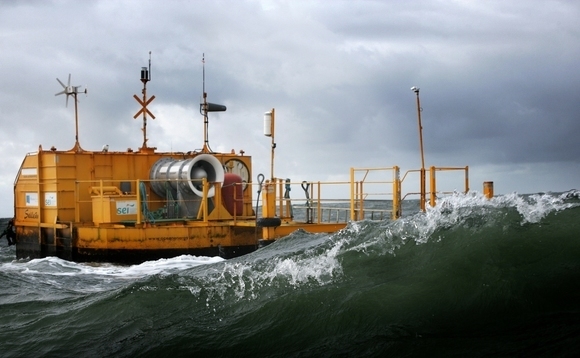
Chinese PE players eye overseas deals

Demand for outbound investments is growing , but there are still hurdles that must be overcome.
The low cost of capital and favorable government policy have left little doubt that China's outbound direct investment will continue to grow exponentially over the coming years. To what extent though can private equity can benefit from this trend?
A Capital, a private equity firm that focuses on Chinese cross-border transactions, predicts that, based on current growth rates, Chinese outbound investment could reach $800 billion by 2016. Private equity firms have played a role in some transactions so far. Notably, Chinese construction equipment manufacturer Zoomlion, a portfolio company of Hony Capital, acquired Italy's Compagnia Italiana Forme Acciaio (CIFA) in 2008, with Mandarin Capital Partners and Goldman Sachs also participating. In January, CITIC Private Equity came on board when Sany Heavy Industry agreed to buy Germany's Putzmeister.
"There are very good opportunities in Europe," Zhen Gao, managing partner of Mandarin Capital, tells AVCJ. "While more Chinese companies want to get access to Western technology through M&A, more European companies are keen to increase their China exposure by cooperating with private equity teams that understand the local market."
At least one of these investments has already generated significant returns. Mandarin Capital bought a controlling stake in Italian pharmaceutical ingredient maker Euticals four years ago and guided it through the acquisitions of four companies in China and Europe. Last month, the private equity firm sold down 30% of its 54% interest in Euticals, netting a 3x return on its initial investment. Mandarin Capital claims this is a record for an outbound investment by a Chinese private equity firm.
Teething problems
Nevertheless, considerable obstacles remain for such deals. Aligning the interests of strategic and financial investors is a challenge, regardless of geography. In China, relations between entrepreneurs and private equity firms take another twist: The former, happy enough with a fast-growing domestic market and skeptical of the West's economic prospects despite cheap valuations, often fail to follow through on initial interest.
"We have met many leading Chinese executives who are interested in outbound investments, but most of them weren't willing to pursue acquisitions because they don't trust foreign counterparts" explains Gao.
Another issue is regulatory approval. Only a handful of private equity funds receive the green light from Beijing to operate overseas. There are no clear rules regarding PE participation in outbound investment, but PE deals are generally treated in much the same way as outbound investments made by ordinary Chinese enterprises. They require approval from a range of agencies, including the National Development and Reform Commission (NDRC) and the Ministry of Commerce (MofCom). "The approval process - which can be time-consuming - can make deals less attractive, given that the domestic market also offers good investment opportunities," says Hong Sun, a partner at Norton Rose.
For all the financial support the government has pledged for outbound investment, reducing the amount of red tape that surrounds deals might be just as effective.
Long arm of the state
Cindy Qu, an analyst at Z-Ben Advisors in Shanghai, notes that the bulk of deals are driven by state-owned enterprises (SOEs), with the likes of China Development Bank and provincial government bodies featuring strongly. The Shanghai city government, for example, is raising an outbound private equity fund with a target of RMB50 billion ($8 billion), which will be the largest international renminbi-denominated vehicle ever created.
Private equity firms with strong ties to SOEs, such as Hony and CITIC Private Equity, appear to have an edge therefore. However, the internationalization of the renminbi - and the removal of capital constraints this involves - is likely to facilitate outbound investment across the board. PE QDII, a trial program which will allow GPs to invest offshore without having to fulfill NDRC and MofCom approvals, will be another sweet spot.
"It will be interesting to see whether and how the PE QDII program offers an attractive ‘fast track' for onshore renminbi-denominated funds to invest into the offshore market," Sun explains.
In order to tap into the opportunity of renminbi internationalization, A Capital partnered with the Beijing Municipal Bureau of Financial Work last year to launch a RMB3 billion fund. The firm has seen increased interest from LPs wanting to participate in outbound funds. "There are too many GPs in China targeting local companies and the bargaining power has shifted from GPs to entrepreneurs, in a trend that brings valuations up and draws returns down," says A Capital Chairman André Loesekrug-Pietri.
Mandarin Capital, meanwhile, is rolling out its second outbound euro fund this year, which will target EUR1 billion - three times more than its predecessor. A renminbi fund is also under consideration. Gao agrees that there is increasing appetite for cross-border deals, especially with the domestic private equity market coming down from its peak.
"In previous years, the domestic market was so strong that most PE firms could just do pre-IPO deals," Gao says. "Private equity firms are now targeting overseas M&A as a point for growth, and more people are approaching us to work together."
Latest News
Asian GPs slow implementation of ESG policies - survey
Asia-based private equity firms are assigning more dedicated resources to environment, social, and governance (ESG) programmes, but policy changes have slowed in the past 12 months, in part due to concerns raised internally and by LPs, according to a...
Singapore fintech start-up LXA gets $10m seed round
New Enterprise Associates (NEA) has led a USD 10m seed round for Singapore’s LXA, a financial technology start-up launched by a former Asia senior executive at The Blackstone Group.
India's InCred announces $60m round, claims unicorn status
Indian non-bank lender InCred Financial Services said it has received INR 5bn (USD 60m) at a valuation of at least USD 1bn from unnamed investors including “a global private equity fund.”
Insight leads $50m round for Australia's Roller
Insight Partners has led a USD 50m round for Australia’s Roller, a venue management software provider specializing in family fun parks.





